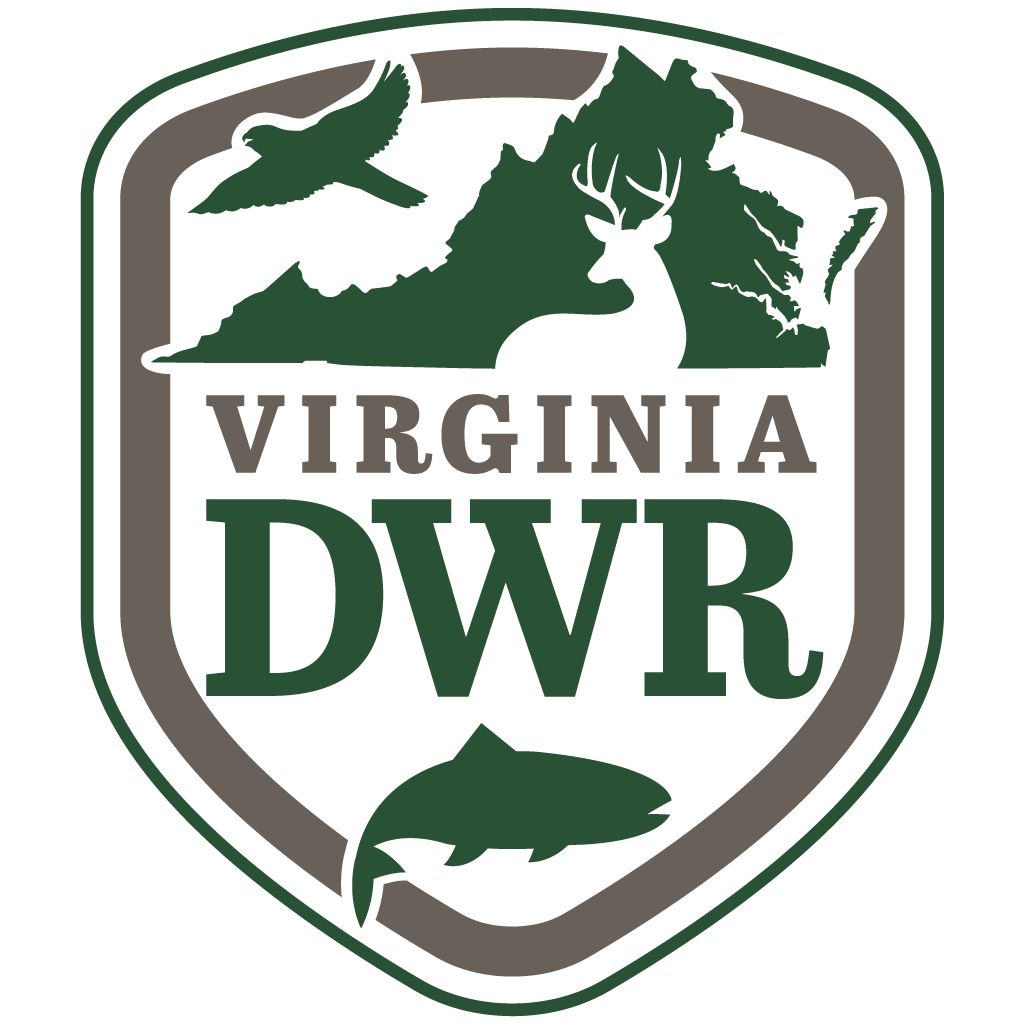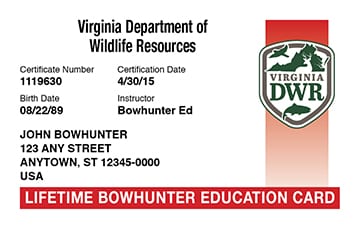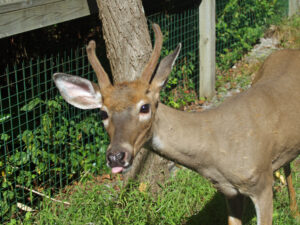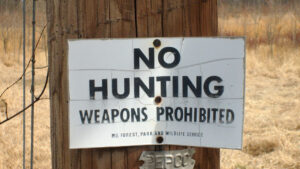Acquiring a hunting license in Virginia is a legal requirement for anyone wishing to hunt within the state. The Virginia Department of Game and Inland Fisheries oversees the issuance of various types of hunting licenses, each tailored to different wildlife species and hunting methods. It’s vital for hunters to understand the specific requirements, fees, and legal implications associated with obtaining and maintaining a valid hunting license in Virginia. This article will guide you through understanding the different licenses, how to obtain them, their costs, and the consequences of non-compliance.
Key Takeaways
- Virginia law mandates special licenses for hunting bear, deer, and turkey, in addition to a general hunting license, with fees varying for residents and nonresidents.
- There are distinct licenses for residents and nonresidents, as well as specialized licenses for archery, slingbow, crossbow, and fox hunting.
- Hunting licenses in Virginia can be purchased both in-person at designated locations and online through the Department of Game and Inland Fisheries website.
- The fee structure for Virginia hunting licenses includes a schedule for various licenses, with certain discounts and complimentary licenses available, and specific renewal procedures.
- Legal consequences for hunting without a license in Virginia include revocation of licenses and penalties, but there is an appeals process for those who face license revocation.
Understanding Virginia’s Hunting License Requirements

Code of Virginia and Hunting Regulations
Securing a virginia hunting license is governed by the Code of Virginia, which outlines the legal framework for all hunting activities within the state. The regulations are detailed in Title 29.1, covering wildlife, inland fisheries, and boating, and include specific articles on hunting, trapping, and fishing licenses. It is unlawful to hunt without a license as per
29.1-300, emphasizing the importance of understanding and adhering to virginia hunting regulations.
Special licenses are required for hunting certain game such as bear, deer, and turkey, as indicated in
29.1-305. These regulations ensure the conservation of wildlife and promote safe hunting practices. Hunters interested in using archery, slingbows, or crossbows must also obtain special licenses under
29.1-306.
For those seeking a west virginia hunting license, it’s crucial to note that while similar, west virginia hunting regulations may differ from Virginia’s. The west virginia dnr hunting license requirements are managed separately, and hunters should consult the West Virginia Division of Natural Resources for specific guidelines. Compliance with these regulations is not only a legal obligation but also a responsibility to the hunting community and wildlife conservation efforts.
Special Licenses for Bear, Deer, and Turkey
In Virginia, hunters seeking to pursue bear, deer, and turkey must obtain a special license. This is in accordance with the Code of Virginia
§ 29.1-305, which mandates additional licensing beyond the standard requirements for hunting other game. The special license encompasses all three species, streamlining the process for hunters.
The special license for bear, deer, and turkey is essential for legal hunting practices in Virginia. It ensures that hunters are recognized by the state and adhere to the specific regulations governing these species.
For those interested in a west virginia lifetime hunting license, it’s important to note that Virginia’s special licenses are separate and distinct, with their own set of fees and regulations. The fees for these special licenses vary based on residency and age, with a clear structure designed to accommodate different hunter demographics.
Residents and nonresidents alike must be aware of the fee schedule and the requirement to hold a standard hunting license in addition to the special license. The Board retains the authority to revise license costs, ensuring that the fee structure remains responsive to the state’s wildlife management needs.
Penalties for Hunting Without a License
In Virginia, the consequences of hunting without a license are severe and strictly enforced. Violating the hunting regulations can lead to significant penalties, including fines and potential jail time. For instance, if a person is convicted of such a violation for a second time within three years, they may face a mandatory suspension of their hunting privileges for one to five years.
It shall be unlawful to hunt, trap or fish in or on the lands or inland waters of this Commonwealth without first obtaining a license.
Additionally, if an individual is caught hunting, trapping, or fishing during a period when their license is revoked, they commit a Class 2 misdemeanor. The court may extend the prohibition on obtaining a new license or exercising hunting privileges for an additional one to five years. It’s important to note that these regulations apply to both residents and nonresidents, including those seeking a west virginia out of state hunting license.
Types of Hunting Licenses in Virginia

Resident vs. Nonresident Licenses
When it comes to hunting in Virginia, the distinction between resident and nonresident licenses is crucial. Virginia residents are eligible for different licenses and fee structures compared to nonresidents. For instance, a special license for hunting bear requires residents to pay $25, while nonresidents are charged $150. This differential is also seen in the allocation of tags for certain game, such as elk, where the split between resident and nonresident tags is distinct.
Nonresidents seeking to hunt in Virginia must be aware of the specific requirements and fees associated with a Virginia non resident hunting license. The non resident hunting license in Virginia is designed to accommodate those who do not reside within the state but wish to enjoy its hunting opportunities. It’s important to note that the virginia hunting license non resident fees are typically higher than those for residents, reflecting the premium for non-local hunters.
To ensure compliance and avoid penalties, non resident hunting license virginia applicants should familiarize themselves with the state’s hunting regulations and fee schedules. The process for obtaining a nonresident license is similar to that for residents, but with the added necessity of proving nonresidency status.
The tag allocation split for resident and nonresident is a little different, which I’ll explain below: No more than one or 10% (whichever is greater) of elk tags are reserved for nonresidents, ensuring that resident hunters have priority access to hunting opportunities.
Special Archery, Slingbow, and Crossbow Licenses
In Virginia, hunters interested in using archery equipment during special seasons must obtain the appropriate licenses. A special license is required for hunting with a bow and arrow, slingbow, or crossbow during these designated times. This is in addition to any standard hunting licenses for small or big game.
For individuals with disabilities that prevent the drawing of a bow or crossbow, Virginia offers a specialized license for hunting with an arrowgun. Applicants must provide proof of disability, which is verified by the Director using a standardized form from the Department. This form must be carried by the hunter at all times while hunting.
It is essential for hunters to be aware of the specific requirements and regulations associated with special archery, slingbow, and crossbow licenses to ensure compliance and avoid any legal issues.
Special Fox Hunting Licenses
In Virginia, a distinct category of hunting license is available for those who wish to engage in the traditional sport of fox hunting. This special license permits hunting foxes on horseback with hounds, but notably, without the use of firearms. It is designed to cater to the specific needs of this hunting method, ensuring that participants can enjoy the activity in compliance with state regulations.
The special fox hunting license offers an exemption from the hunter education requirement, which is typically mandatory for other types of hunting licenses. This exemption reflects the unique nature of fox hunting and the skills that participants already possess. The fee for this license is aligned with the standard hunting license fees, maintaining consistency across the licensing structure.
Those holding a standard hunting license are not required to obtain this special license, as it is included within the broader permissions of their existing license. This provision simplifies the process for hunters who may engage in various forms of hunting throughout the season.
Legislative discussions have considered the introduction of a hound hunting permit, although this has not yet been enacted. Such a permit would potentially align with existing license fees and further regulate the use of hounds in hunting activities within the state.
How to Obtain a Virginia Hunting License

Purchasing Licenses In-Person
For hunters preferring a personal touch, Virginia offers in-person license purchasing options. Residents and nonresidents alike can visit designated locations between 8:45am and 4:45pm to apply for and obtain their hunting licenses. This includes those seeking a virginia out of state hunting license, ensuring all hunters comply with the Code of Virginia.
The process is straightforward and can be completed quickly, with licenses immediately available upon completion of the application and payment.
It’s important to note that fees may vary, and the Board retains the authority to revise costs as per § 29.1-103. For example, the fee for a special license is currently $17 for residents and $30 for nonresidents. Hunters should be prepared for potential changes in fee structures.
Online License Application Process
Applying for a Virginia hunting license online is a convenient option for those who prefer to handle the process from the comfort of their home. The online system is accessible 24/7, allowing applicants to apply at any time that suits them. To begin, you’ll need to create an account on the Virginia Department of Wildlife Resources’ official website.
Once your account is set up, the following steps should be followed:
- Log in to your account.
- Select the type of hunting license you wish to purchase.
- Complete the mandatory Hunter Education Course if you are a first-time hunter.
- Fill out the required personal information.
- Pay the applicable license fee using a credit or debit card.
After the payment is processed, you will receive a confirmation email with your license details. You can then print out a copy of your license or save it on your mobile device for easy access while hunting.
Remember, Virginia mandates that all first-time hunters complete a Hunter Education Course. This course is essential for understanding hunting safety, ethics, and responsibilities in the field.
Requirements for Junior and Senior Hunters
Virginia’s dedication to fostering a new generation of hunters and ensuring the continued participation of senior hunters is evident in its licensing structure. Junior hunters under the age of 16 and senior hunters aged 65 and above benefit from special licensing considerations. For instance, the state may offer a separate state youth resident license for hunting bear, tailored to encourage young hunters to engage in the sport at an early age.
While the standard hunting license requirements apply, there are certain exemptions and fee adjustments for these age groups. A Virginia youth license, for example, comes at a reduced cost, making it more accessible for families to introduce hunting traditions to the next generation. Similarly, senior hunters can take advantage of discounted rates, acknowledging their lifelong contribution to the hunting community.
It is crucial for junior and senior hunters to be aware of the specific regulations that apply to them, including any required hunter education courses or permits for particular game species.
For those interested in a wv lifetime hunting license, it’s important to note that while Virginia offers various long-term licenses, regulations and fees may differ from neighboring states such as West Virginia.
Virginia Hunting License Fees and Structure

Fee Schedule for Various Licenses
The Virginia Department of Wildlife Resources (DWR) establishes the fee schedule for various hunting licenses, which are subject to change as per legislative updates. For instance, a special license for hunting bear, deer, and turkey costs $17 for residents and $30 for nonresidents. These fees can be revised by the Board in accordance with Section 29.1-103 of the Code of Virginia.
In addition to special licenses, the DWR offers a range of permits and licenses, including concealed handgun permits and fishing licenses. Each category of license has its own fee structure, which is detailed in the DWR’s official publications and website.
It is essential for hunters to stay informed about the latest fee schedules and ensure that they are in compliance with the current regulations to avoid penalties.
For a comprehensive understanding of the costs associated with hunting in Virginia, individuals can refer to the Civil Filing Fees Table and Recordation Tax Table, which provide a clear breakdown of all related expenses.
Discounts and Complimentary Licenses
Virginia offers a variety of discounts and complimentary licenses to eligible individuals. Certain groups, such as seniors, juniors, and military personnel, may qualify for reduced fees or even free licenses. These concessions are designed to encourage participation in hunting while recognizing the contributions and needs of specific community members.
The Virginia Department of Wildlife Resources (DWR) provides special licensing options that cater to the diverse population of hunters. This includes lifetime licenses and discounted rates for residents and nonresidents alike.
For instance, veterans and active-duty military personnel can benefit from the Virginia Lifetime License at a reduced fee or no cost at all. It’s important for applicants to verify their eligibility and understand the specific requirements for these discounts to ensure compliance with state regulations.
License Validity and Renewal Procedures
Virginia hunting licenses are issued with specific validity periods, after which they must be renewed to continue lawful hunting activities. Renewal procedures are straightforward and can often be completed online or at designated locations where hunting licenses are sold.
To ensure compliance, hunters should be aware of the expiration date of their licenses and begin the renewal process in advance. The Virginia Department of Wildlife Resources provides reminders to license holders as their expiration dates approach.
It is essential for hunters to maintain an active license status to avoid penalties and ensure the conservation efforts funded by license fees are supported.
Below is a summary of key points regarding license validity and renewal:
- Licenses must be renewed upon expiration.
- Renewal can typically be done online or in-person.
- Hunters will receive notifications prior to license expiration.
- Maintaining an active license is crucial for legal hunting and conservation support.
Legal Consequences and Revocation of Hunting Privileges

Revocation of Licenses and Penalties
In Virginia, the revocation of hunting licenses is a serious consequence for violating wildlife conservation laws. Violators may face a Class 2 misdemeanor and, depending on the severity of the offense, can also be subject to a prohibition from hunting, trapping, or fishing for a specified period as determined by the court. This is in accordance with Title 29.1-338 of the Virginia Law.
The revocation of a hunting license not only affects the individual’s ability to partake in hunting activities but also serves as a deterrent to uphold the integrity of wildlife management practices.
The penalties for hunting without a license or violating other regulations can include fines, imprisonment, or both. The specific penalties are structured to reflect the gravity of the offense and to discourage future violations. Below is a summary of potential penalties:
- Class 2 misdemeanor
- Court-imposed prohibition on hunting, trapping, or fishing
- Fines and/or imprisonment
- Additional sanctions as deemed appropriate by the court
Understanding the Appeals Process
When a hunter in Virginia faces the revocation of their hunting license, they have the right to appeal the decision. The appeals process is designed to ensure fairness and due process. Appeals must be filed within a specific timeframe after the revocation notice is received, and the process typically involves a review by the Circuit Court.
To initiate an appeal, the appellant must submit a written request to the court, outlining the grounds for the appeal. The court then reviews the case, considering any new evidence or legal arguments presented. If the court finds in favor of the appellant, the revocation may be overturned, and hunting privileges restored.
It is crucial for hunters to understand the appeals process and to act promptly if they wish to challenge a revocation. Legal representation or advice can be beneficial in navigating the complexities of the legal system.
The outcome of an appeal can vary, and it is not guaranteed that the original decision will be changed. However, the opportunity to appeal provides a critical check on the authority of the licensing body, ensuring that hunters have a chance to defend their rights.
Preventative Measures and Compliance
To ensure compliance with Virginia’s hunting regulations, hunters are encouraged to familiarize themselves with the Code of Virginia and the Board of Wildlife Resources‘ directives. Preventative measures include understanding and respecting property boundaries, as well as adhering to the specific rules for the hunting season.
Recent discussions by the Board of Wildlife Resources have highlighted the importance of responsible dog handling. Proposals suggest that hunters may need to use GPS collars on their dogs and make reasonable efforts to prevent them from trespassing on private property.
Education and awareness are key to preventing violations. Enhanced training for conservation officers and educational efforts for hunters are steps being considered to improve compliance and reduce the likelihood of infractions.
Hunters should also be aware of the potential legal consequences for failing to comply with hunting regulations, which can include fines and revocation of hunting privileges. Staying informed about changes to regulations, such as those concerning the use of dogs during hunts, is crucial for a lawful hunting experience.
Understanding the legal implications of hunting is crucial for every enthusiast. Violating hunting laws can lead to severe consequences, including the revocation of hunting privileges. To ensure you’re well-informed and compliant with the latest regulations, visit our website’s ‘General Laws and Regulations‘ section. Stay ahead of the game and maintain your right to enjoy the great outdoors responsibly. Don’t let ignorance of the law disrupt your passion for hunting—educate yourself today!
Conclusion
Securing a hunting license in Virginia is a straightforward process governed by the Code of Virginia, ensuring that all hunters comply with state regulations for wildlife conservation and safety. Whether you’re a resident or nonresident, young or old, there are specific licenses tailored to your needs, including special licenses for hunting bear, deer, turkey, and fox. With the convenience of online applications through the Department of Game and Inland Fisheries, obtaining a license has never been easier, allowing hunters to focus on the experience of hunting within the beautiful landscapes of Virginia. It’s important to remember that adherence to the licensing laws not only contributes to the preservation of Virginia’s rich wildlife but also to the tradition of responsible and ethical hunting.
Frequently Asked Questions
What are the requirements for obtaining a hunting license in Virginia?
In Virginia, a hunting license is required for hunting bear, deer, turkey, and other game. Special licenses are required for certain game and for residents under 16 and nonresidents. The Code of Virginia provides specific details regarding the types of licenses and requirements.
Can I purchase a Virginia hunting license online?
Yes, you can purchase a Virginia hunting license online through the Department of Game and Inland Fisheries website. Your license will be emailed to you after purchase.
Are there different fees for resident and nonresident hunting licenses in Virginia?
Yes, Virginia has different fee schedules for residents and nonresidents. For example, a special license for hunting bear, deer, and turkey costs $12 for residents over 16, $7.50 for residents under 16, and $60 for nonresidents over 16.
What are the penalties for hunting without a license in Virginia?
Hunting without a license in Virginia is unlawful and can result in the revocation of hunting privileges and other penalties as outlined in the Code of Virginia, Section 29.1-300.
How do I know if I need a special license for hunting certain animals in Virginia?
The Code of Virginia specifies that special licenses are required for hunting bear, deer, turkey, and in some cases, fox. It’s important to check the current regulations for any updates on special licenses needed.
What is the process for renewing a Virginia hunting license?
Virginia hunting licenses can be renewed in person at authorized locations or online through the Department of Game and Inland Fisheries. The renewal process may vary depending on the type of license and any changes in regulations.





